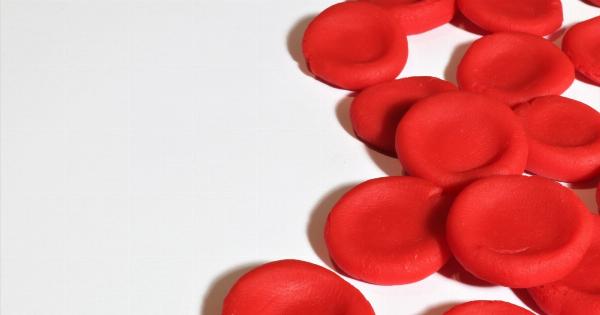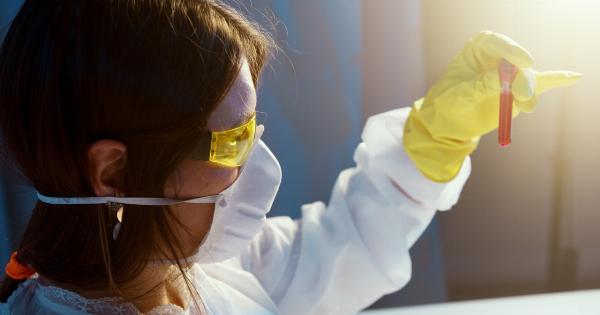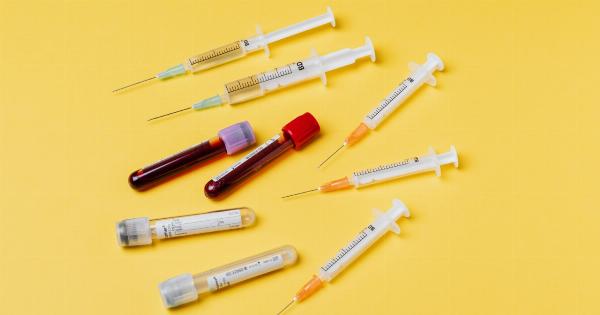Donating blood is a selfless act that can save lives and make a genuine difference in the world. Blood is a crucial resource necessary for various medical procedures, including surgeries, emergency care, and treating chronic illnesses.
Many people rely on blood transfusions to survive, and by donating blood, you can directly contribute to their well-being and recovery. In this article, we will explore the importance of blood donation, the process of donating blood, and the numerous benefits associated with this noble act.
The Impact of Blood Donation
The impact of blood donation cannot be overstated. Each blood donation has the potential to save up to three lives, as blood can be separated into red blood cells, plasma, and platelets, which are used to treat different medical conditions.
Blood transfusions are often required for individuals with severe injuries, cancer patients undergoing chemotherapy, patients with blood disorders, and individuals with other life-threatening conditions.
By donating blood, you have the power to give hope and a second chance to those in need. One unit of donated blood can help an accident victim, a premature baby, or a person undergoing major surgical procedures.
Additionally, blood donations are crucial during emergencies, natural disasters, and times when the demand for blood supply increases, such as during the COVID-19 pandemic.
The Blood Donation Process
Before donating blood, it is essential to understand the process involved. Donating blood is a simple and safe procedure that typically takes around 30 to 45 minutes. Here’s a step-by-step breakdown of what to expect:.
Step 1: Eligibility and Screening
Prior to donating blood, potential donors must meet specific eligibility criteria. These criteria primarily focus on ensuring the donor’s safety and the quality of donated blood.
Factors that determine eligibility include age, overall health, weight, travel history, and previous medical conditions. Additionally, a screening process is conducted to assess hemoglobin levels, blood pressure, pulse, and temperature.
Step 2: Registration and Medical History
After passing the eligibility and screening stage, donors are required to register themselves. This involves providing personal information and identification documents.
Following registration, a series of questions regarding medical history, lifestyle choices, and recent travels will be asked to ensure the safety of the recipient and the donor.
Step 3: Physical Examination
A qualified medical professional will perform a physical examination to ensure the donor’s suitability for blood donation. This generally involves measuring height, weight, body temperature, and blood pressure. The examination is conducted to identify any signs of illness or potential risk factors.
Step 4: The Donation Process
Once deemed eligible, the donor will be taken to a donation area where they will be seated comfortably. A tourniquet will be tied around the upper arm to make the veins more visible and accessible.
A sterilized needle will be inserted into the vein, and blood will be collected in a sterile bag. The amount of blood collected depends on the country’s specific guidelines, but it usually ranges from 400 to 500 milliliters. The process is relatively painless and safe.
Step 5: Refreshment and Recovery
After donating blood, donors are advised to rest for a short period and rehydrate by consuming fluids and snacks provided at the donation center. This allows the body to recover and replenish the lost fluids and nutrients.
It is common to experience lightheadedness or dizziness after blood donation, but these symptoms usually subside quickly.
Post-Donation Care and Benefits
After donating blood, it is crucial to take care of yourself and follow certain guidelines to ensure a speedy recovery. Here are some essential post-donation recommendations:.
1. Hydrate and Eat Nutritious Meals
Drinking plenty of fluids and consuming nutrient-rich meals can help your body replenish the lost blood volume and maintain overall well-being.
2. Avoid Strenuous Activities
Engaging in heavy lifting, intense workouts, or any strenuous activities for at least 24 hours is recommended to prevent fatigue or injury.
3. Rest and Relax
Your body needs time to recover, so make sure you get enough rest and avoid excessive physical or mental stress.
4. Observe the Donation Site
It’s essential to keep an eye on the donation site for any signs of infection or abnormal reactions. If you notice any unusual symptoms like prolonged bleeding, redness, swelling, or pain, consult a healthcare professional immediately.
5. Continue Regular Donations
Blood is constantly needed, so if eligible, consider becoming a regular blood donor. Frequent donations help ensure a stable and sufficient blood supply, ultimately saving more lives.
Benefits of Blood Donation
Besides the immense satisfaction of helping others, donating blood provides several benefits for the donor as well:.
1. Health Check-up
Before donating blood, each donor undergoes a thorough health screening, including tests for infectious diseases, such as HIV, hepatitis B and C, syphilis, and malaria.
These tests can alert donors to potential health issues they may be unaware of, allowing them to seek early medical intervention.
2. Reduced Risk of Heart Disease
Regular blood donation can potentially reduce the risk of heart disease by lowering iron levels in the blood. Excessive iron can lead to oxidative stress and damage blood vessels, increasing the risk of cardiovascular diseases.
By donating blood, the iron levels are regulated, reducing this risk.
3. Increased Blood Cell Production
Upon donating blood, the body replaces the donated blood volume within 48 hours. This stimulates the production of new blood cells, ensuring a fresh supply of healthy blood throughout the body.
As a result, blood circulation improves, and overall health is enhanced.
4. Psychological and Emotional Well-being
Helping others through blood donation can bring a sense of satisfaction, purpose, and emotional well-being.
It creates a positive impact on mental health by reducing stress levels and providing a feeling of camaraderie with fellow donors and healthcare professionals.
5. Free Medical Check-up
In addition to the mandatory health screening, blood donation centers often provide free medical check-ups, which may include blood pressure monitoring, hemoglobin level checks, and other basic tests.
These regular check-ups can detect any underlying health conditions early on.
The Importance of Continuous Blood Donations
Blood shortages can have severe consequences for individuals in need of transfusions. Continuous blood donations are essential to maintain a sufficient supply of blood for emergencies and medical treatments.
Unfortunately, blood shortages are a recurring issue in many countries, and the demand for blood often exceeds the available supply.
By donating blood regularly, you contribute to the stability of the blood supply chain. Regular donations help blood banks maintain an adequate reserve and respond promptly to emergencies.
Moreover, many medical treatments, including surgeries and cancer treatments, rely on consistent blood availability, emphasizing the significance of donating blood on an ongoing basis.
Conclusion
Donating blood is a simple yet impactful way to make a difference in the lives of others. It is a noble act that has the potential to save countless lives and improve the health and well-being of many individuals.
By understanding the importance of blood donation, participating in the donation process, and promoting a culture of regular blood donations, we can collectively contribute to building a healthier and more resilient society.




























